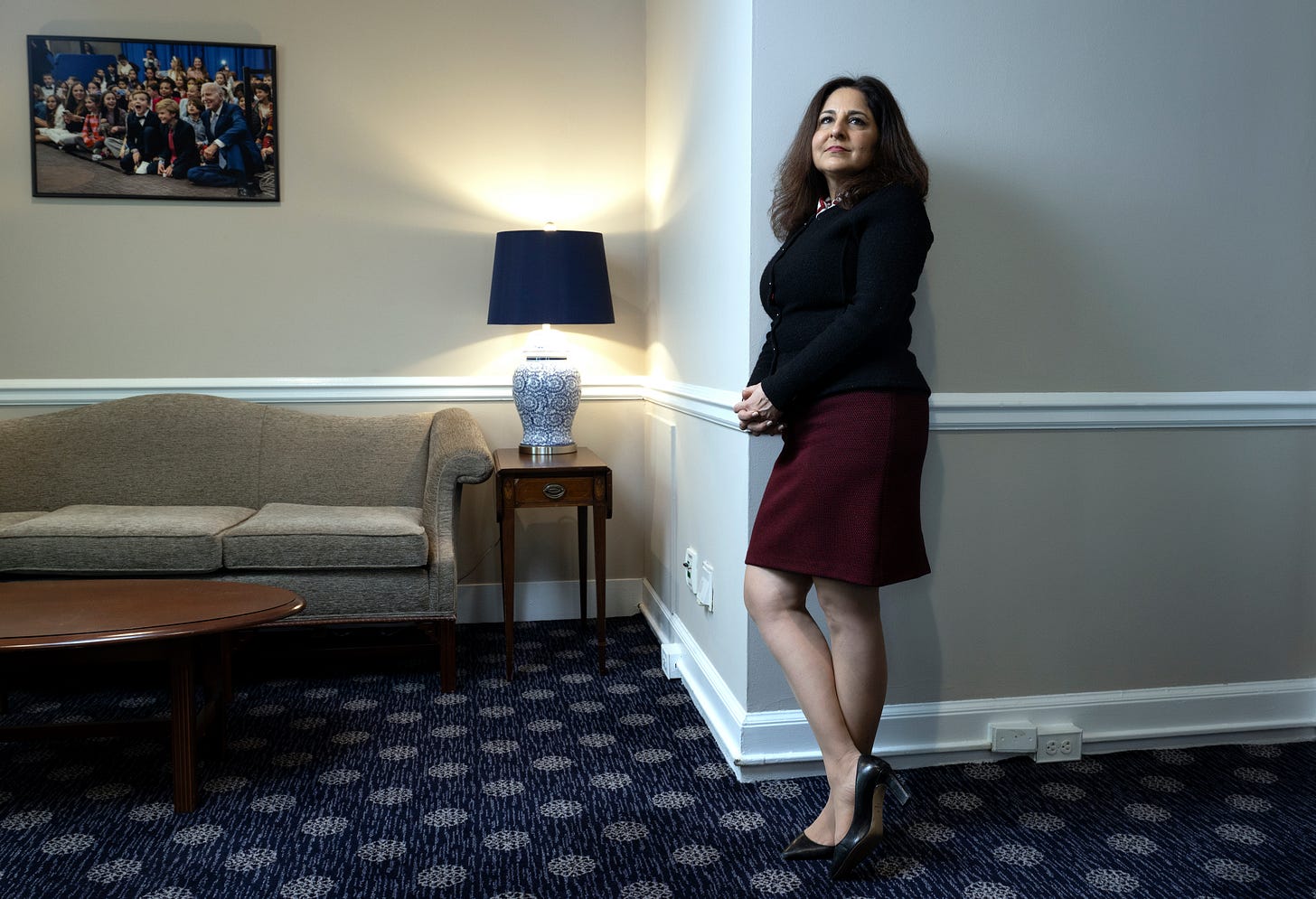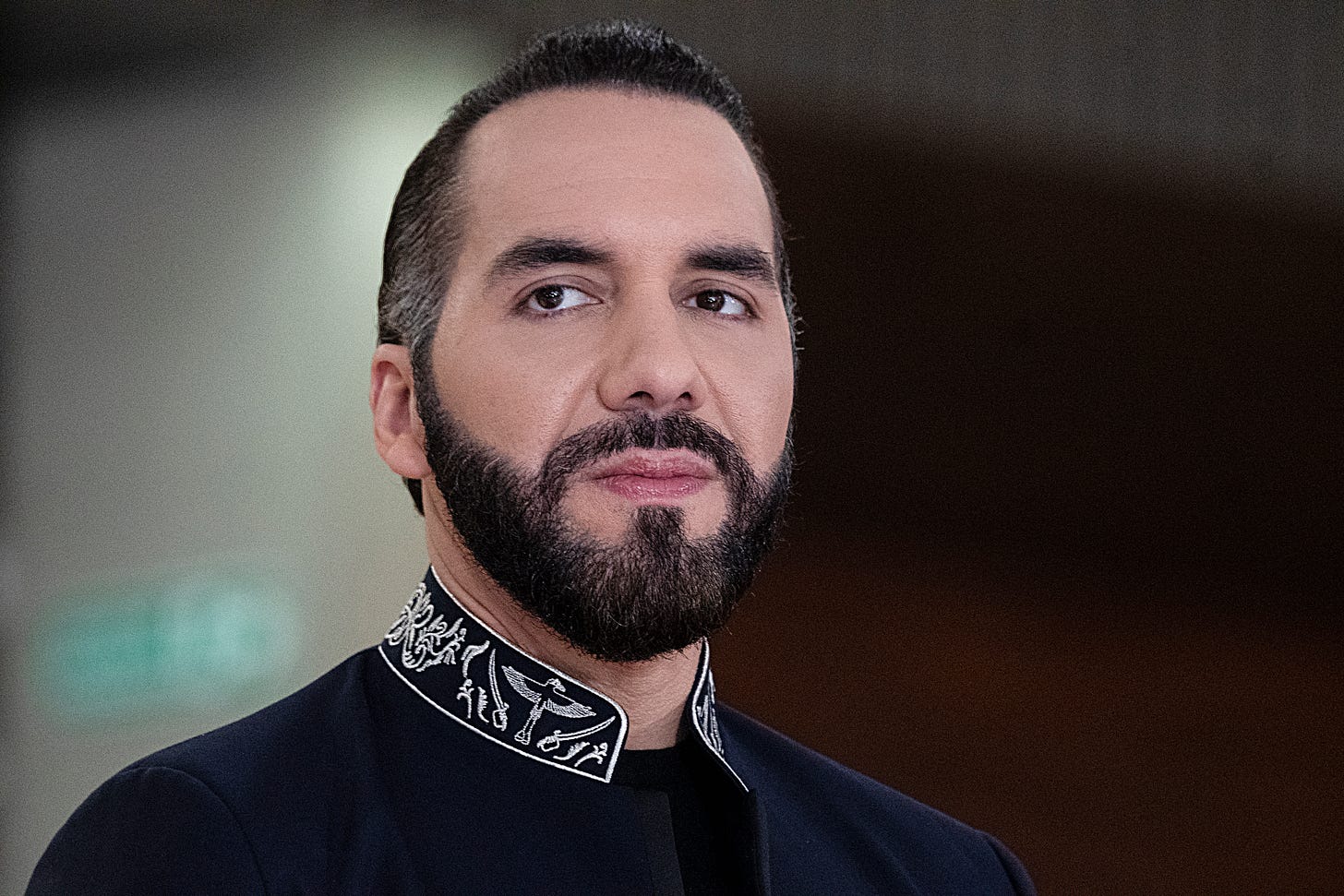
Neera Tanden Unplugged
April 13, 2025
Supreme Court Said Bring Him Back—Trump Still Refusing
April 13, 2025An emergency Sunday Triad, because I’m concerned that people don’t appreciate how important this week will be for American democracy and our constitutional order.
Buckle up.
If you were Chris Krebs, would you flee the country?
Your answer before last week would probably be “no.” Your answer after last week is probably “maybe.” Your answer after the coming week might be “absolutely.”
Let’s break it down to understand what just happened and what is coming in the next 48 hours. Because the next two days may determine whether or not America crosses more critical red lines into open authoritarianism.
Last Wednesday, the president signed a memorandum instructing both the Justice Department and the Department of Homeland Security to investigate Chris Krebs. You’ll remember that during Trump’s first term, Krebs headed the new Cybersecurity and Infrastructure Security Agency—and was fired two weeks after the 2020 election for publicly rebutting Trump’s lies about the integrity of the election. Trump’s memorandum flips truth upside down, accusing Krebs of having “falsely and baselessly denied that the 2020 election was rigged and stolen,” and it not only orders an investigation into Krebs himself but it also commands that the entire cybersecurity company he now works for be stripped of any security clearances it has.
On Thursday, in an unsigned, unanimous decision, the Supreme Court ordered that the Trump administration must “facilitate” the return of Kilmar Abrego Garcia, the immigrant whom Homeland Security mistakenly (by its own admission) arrested and extradited to a gulag in El Salvador.
On Saturday the government responded to the SCOTUS decision by stonewalling the district court judge and then claiming that it could not “facilitate” the return of Abrego Garcia because he is now detained by a sovereign nation on which the United States could not possibly exert any influence.
Also on Saturday, Nayib Bukele, the authoritarian ruler of that sovereign nation, arrived in the United States.
On Sunday, the government stonewalled the district court judge yet again—filing an update saying it had “no updates”—and in a separate filing challenged the Supreme Court’s order to “facilitate” Abrego Garcia’s return, and added that the details of the deal with Bukele to imprison deportees from the United States are “classified.”
On Monday, Bukele will meet with his patron, Donald Trump.
Over the next 36 hours, one of three things will happen.
(1) Bukele will agree to repatriate Abrego Garcia to the United States. He will insist that this decision is entirely his own and that he has chosen to do so as a token of good will toward President Trump.
(2) Bukele will defer the decision, saying that he is considering returning Abrego Garcia but has not yet made up his mind.
(3) Bukele will refuse to return Abrego Garcia. He will say that this is an internal matter on which the American courts can have no say. He will claim that Abrego Garcia is a criminal, a danger, and a threat to El Salvador.
If (1) comes to pass, then a constitutional crisis will have been postponed. Both Trump and SCOTUS can claim to have held firm, but no further action will be necessary until Trump creates the next showdown.
If (2) happens, then all of the pressure falls to the district judge, who will be in the position of trying to manage the U.S. government’s lawyers as they stall, obfuscate, and attempt to evade the fact that they are making a direct challenge to the authority of the judicial system.
But if it’s number 3?
Let us speak plainly: Nayib Bukele is a minor strongman who will do whatever Donald Trump demands of him. If Trump wants Abrego Garcia in the United States, then Bukele will return him. By the same token, if Bukele understands that Trump does not want Abrego Garcia returned, then he will keep the man.
Bukele has no interests in this game other than pleasing his political patron. His exercise of Salvadoran “sovereignty” can only be read as an expression of Donald Trump’s will.
Anyone who asserts otherwise is either a villain or a fool.
So if Bukele affirmatively refuses to repatriate Abrego Garcia, it will mean that Trump has told him not to.
At which point the Supreme Court will face a choice.
Surrender or escalation?
Seeing clearly and speaking plainly are what we do here. Stand with us.
Surrender would entail the Supreme Court declining to move further in Abrego Garcia’s case. The justices can let the district judge twist in the wind and government lawyers deal with the fallout.
In this scenario the Court does not take up the case again. It allows Kilmar Abrego Garcia to remain in El Salvador indefinitely.
I can see Chief Justice John Roberts viewing this as not a surrender but a tactical retreat. And I can understand the logic of it. If the Court declines to intervene further it could maintain that it did assert power over the executive and that the executive did not overtly defy it. The Court can say that it made its judgment and the executive acceded to the ruling—even though the president ultimately got the result he wanted.
Further, Roberts might tell himself that getting a unanimous decision and living to fight another day is the best outcome he was going to get. Because the truth is that no force in the American constitutional system can compel a dictator in El Salvador to do something that he understands the president does not want him to do.
Escalation would mean that when the plaintiffs attempt to take Abrego Garcia’s case back to SCOTUS, alleging that the administration has refused to comply with the Court’s order, the Court finds, in some way, that the administration did not attempt to comply—and from there makes a new demand of the executive in an attempt to gain compliance.
It is unclear where the logic of such actions would lead.
Let’s speak plainly once more: Kilmar Abrego Garcia will not return to the United States unless Donald Trump wants him to. The Supreme Court has the (theoretical) power to force the president to take some actions. But it does not have the power to compel the president’s wishes. And Abrego Garcia’s fate is tied to Trump’s wishes, not any act that Trump might perform.
So the question is: Is the Supreme Court willing to risk a final showdown on presidential power and authoritarianism in America at this moment?
I can see it both ways. On the one hand, the Court is vulnerable. There is no institution within the federal government to join it in a final stand against the executive. If it waits until 2027, then perhaps one house of Congress will be capable of standing with it battle.
And if SCOTUS pushes all in on this case and loses, then it can no longer even pretend to have authority over the executive. After just three months of Trump’s rule, the Constitution will have become a dead letter.
On the other hand, the case of Kilmar Abrego Garcia is not a technical abstraction. It is not about some theory of government functioning. It is about the president’s use of secret police to abduct a man from American soil and send him to a foreign gulag.
For the Supreme Court to allow the government’s actions to stand after declaring them—unanimously—to be unconstitutional, is to declare open season on all enemies of the president. If Abrego Garcia can be kept in El Salvador in contravention of both the written law and the demands of the Supreme Court of the United States then there is nothing—literally nothing—stopping the administration from snatching whatever individual it chooses, putting him on a plane to El Salvador, and then claiming that what is done is done.
If we get (3) and the Supreme Court chooses not to escalate, it will mean that we have created a de facto extralegal policy of imprisonment in a foreign gulag for enemies of the regime.
And it is quite clear where that logic leads.
Which brings us back to our opening questions. If you are Chris Krebs and this week Bukele refuses to return Abrego Garcia and the Supreme Court decides to let Trump get away with it . . .
Would you stay in America? Or would you flee the country for your safety?
Let’s pretend, for a second, that you chose to leave. You show up at the Canadian border and file a claim of political asylum, alleging that you are fleeing political persecution in America and have reason to believe that remaining in your homeland would lead to indefinite imprisonment in a Salvadoran concentration camp.
What would the Canadian legal system make of such a claim?
Would they say that this was outlandish and unfounded?
Or would they believe it to be an accurate depiction of what America has become?
Great Job Jonathan V. Last & the Team @ The Bulwark Source link for sharing this story.





